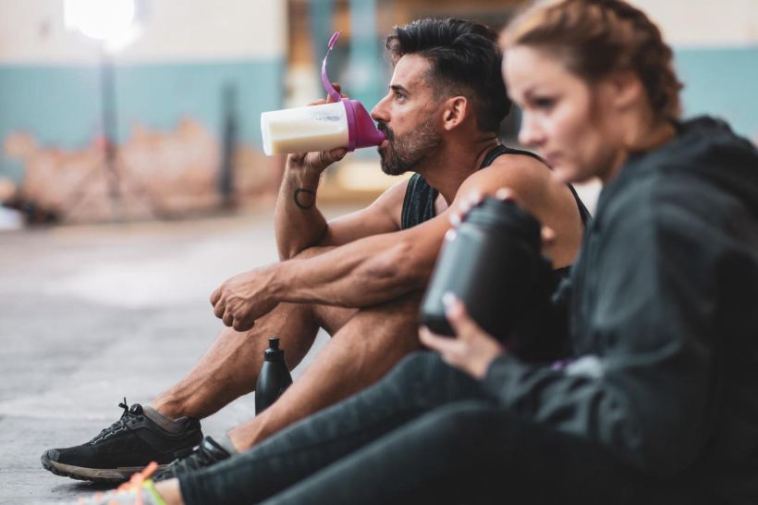- Like
- SHARE
- Digg
- Del
- Tumblr
- VKontakte
- Flattr
- Buffer
- Love This
- Save
- Odnoklassniki
- Meneame
- Blogger
- Amazon
- Yahoo Mail
- Gmail
- AOL
- Newsvine
- HackerNews
- Evernote
- MySpace
- Mail.ru
- Viadeo
- Line
- Comments
- Yummly
- SMS
- Viber
- Telegram
- JOIN
- Skype
- Facebook Messenger
- Kakao
- LiveJournal
- Yammer
- Edgar
- Fintel
- Mix
- Instapaper
- Copy Link
Introduction
When you’re disciplined enough to exercise regularly, it’s nice to know that you’re getting the most out of all your hard work.
It’s also nice to know what you can do to avoid common issues like aches, pains, and acute injuries that could otherwise delay your recovery and impede your physical performance.
To ensure your post-workout recovery goes well, check out these five tips from our team of Washington DC physical therapists from District Performance & Physio.
Optimize Your Protein Intake
When you exercise, you need to refuel properly so your body has the nutrients it needs to repair and strengthen muscle and other tissues. Protein—from foods sources such as meat, fish, eggs, beans, and shakes—is a key nutrient to fill up on.
How much protein do you need? The recommended dietary allowance (RDA) for protein is around 0.8 grams per kilogram of bodyweight per day. Note that this is considered the minimal amount needed to maintain health and lean body mass. Depending on factors like your age, activity level, and overall health, you might need more.
And while there may be some benefits to consuming some protein within 20 to 60 minutes of the end of your workout, what’s most important is ensuring you hit your daily protein goal.
Of course, protein isn’t the only macronutrient that helps with exercise recovery. A well-balanced, whole foods diet full of complex carbohydrates and healthy fats—along with sufficient amounts of water and electrolytes—is ideal for helping you meet your active body’s nutritional needs.
And while we’re at it: be sure to minimize your alcohol intake, too. Alcohol has been shown to have negative effects on recovery and athletic performance, as well as your overall health.
Make Sleep a Priority
Getting enough high quality sleep is one of the best things you can do for your athletic performance and post-workout recovery.
Every night as you sleep, your body is hard at work strengthening your immune system, repairing tissues, and even consolidating newly learned skills. On the contrary, sleep deprivation has been shown to increase the risk of injury and illness, reduce physical performance, and even decrease accuracy and reaction time.
If you’re an adult, aim for 7 to 9 hours of uninterrupted sleep each night in a quiet, cool, and ideally pitch black room.
Alleviate Stress
Exercise is a well-known stress buster, but research tells us that too much stress could actually have a negative effect on your performance and recovery.
For example, high levels of stress have been shown to delay post-workout muscle recovery in runners and other athletes. Psychological stress may even impair your coordination, concentration, and muscle tension, all of which could decrease performance and increase your risk of injury, which really would slow down your recovery efforts.
So, in addition to getting a good diet, minimizing alcohol intake, and getting plenty of sleep, find other ways to relax and de-stress (e.g., massages, journaling, meditation, and breathing exercises).
Manage Your Overall Workload
Overtraining, or training beyond your body’s ability to recover from intense exercise, can lead to fatigue, poor performance, and an elevated risk of injury.
Avoid overstraining by scheduling in proper rest days and ensuring you’re following an intelligent training program—a personal trainer or other credible fitness professional can help you determine if you’re on the right track.
Seek Professional Input
Your body constantly sends you signals about how it’s doing. Signs and symptoms like pain, reduced range of motion, stiffness, and chronic fatigue are all possible indicators of an underlying injury or issue.
To identify and address these issues, and to make sure they don’t get worse over time and impede your athletic performance, it’s a good idea to seek out professional help.
Sure, some minor issues can get better on their own. But if root causes like poor technique, postural imbalance, or even a sleep disorder remain unaddressed, you could end up facing recurring problems.
Helpful resources for workout recovery optimization include personal trainers, physical therapists, and registered dietitians.
The Takeaway
Post-workout recovery is critical. We encourage you not to worry too much about the perfect foam roller, stretching routine, or other “quick fix” that may be trending on social media. They’re simply not as important to your recovery as the other main factors we’ve listed above—so get those big ones in check first before you worry about trying the newest trick.
About Theresa Duncan
Originally from Detroit, MI, Theresa has been offering health and fitness advice for the last 30 years while working as an engineer. She decided to turn her passion into a profession, and finds nothing more satisfying than helping others reach their health and fitness goals.

